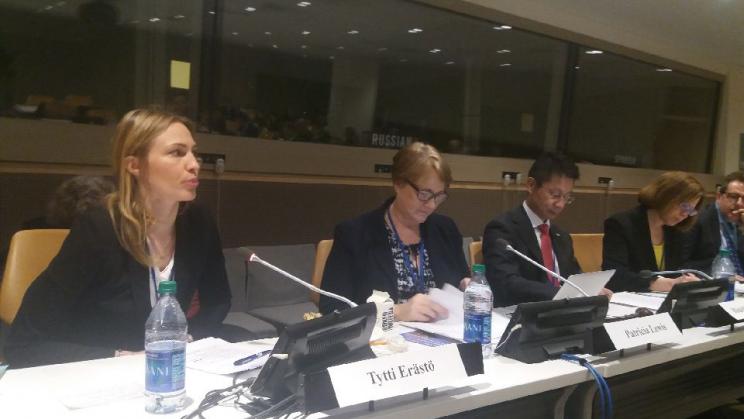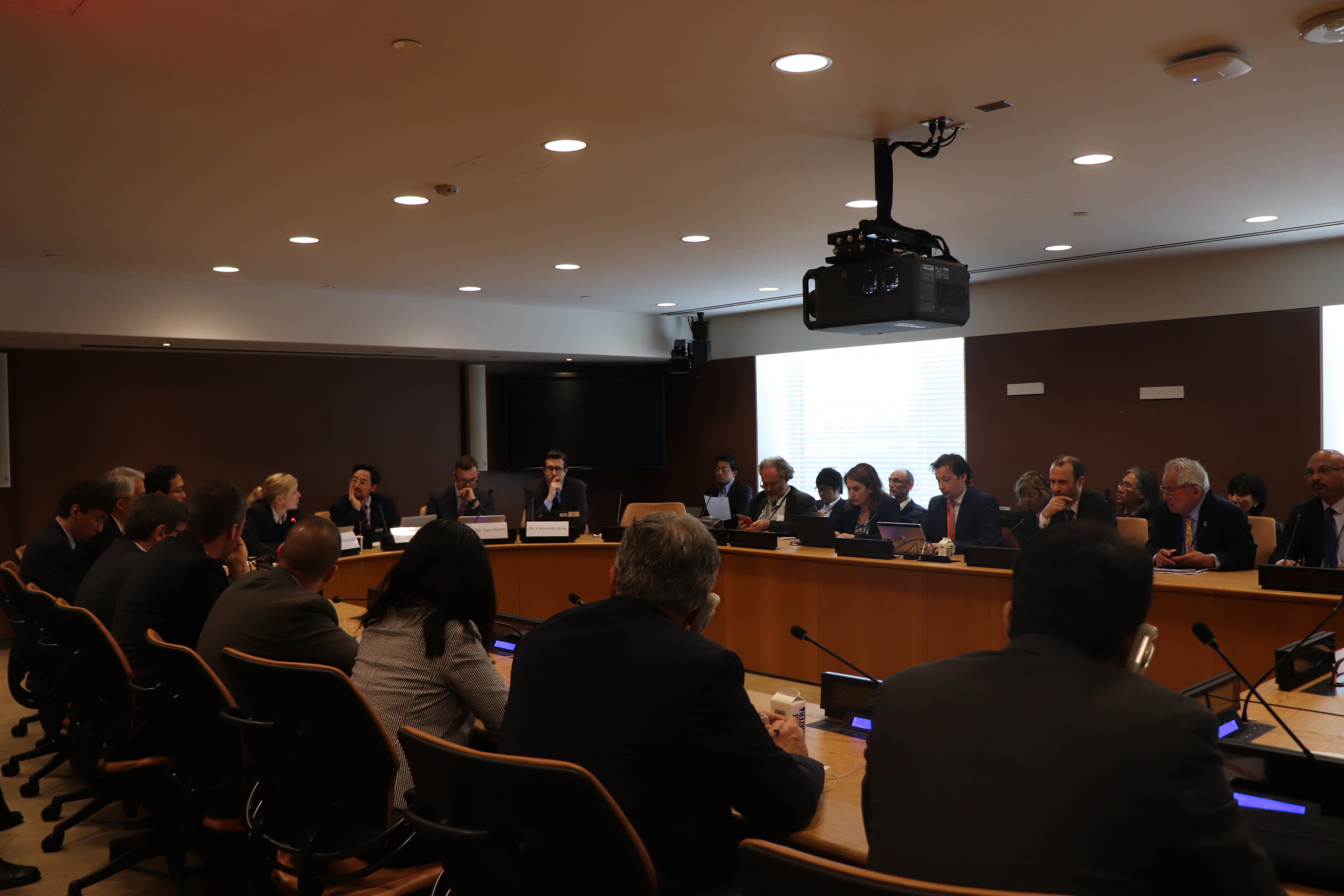
SIPRI discussed two new reports at the Preparatory Committee (PrepCom) for the 2020 Non-Proliferation Treaty Review Conference, held at the United Nations in New York on 29 April–10 May 2019.
The reports cover perspectives on the impact of artificial intelligence on strategic stability and nuclear risk, and the operationalization of nuclear disarmament verification.
The edited volume, ‘The Impact of Artificial Intelligence on Strategic Stability and Nuclear Risk: Euro-Atlantic Perspectives’, investigates why—and how—machine learning and autonomy might become the focus of an arms race among nuclear-armed states. It also examines the impact that the adoption of these technologies might have on their calculations of strategic stability and nuclear risk at the regional and global levels. It is the first in a trilogy on regional perspectives. Later this year, companion volumes offering perspectives from East Asia and South Asia will be available.
The SIPRI Insights paper, ‘Operationalizing Nuclear Disarmament Verification’, explores existing solutions to define a baseline for new arms control and disarmament verification regimes, and considers the requirements for verification under the 2017 Treaty on the Prohibition of Nuclear Weapons (TPNW). The paper argues that existing verification solutions provide plenty of options for incremental disarmament steps, such as further reductions in Russian and US nuclear arsenals. However, more technical work is needed to achieve all the preconditions for a nuclear weapon-free world, particularly on verifying the dismantlement of nuclear weapons. The paper argues that a more favourable political context could also reduce the extent to which technical challenges are perceived as obstacles to nuclear disarmament.

About the Treaty on the Non-Proliferation of Nuclear Weapons
The Treaty on the Non-Proliferation of Nuclear Weapons (Non-Proliferation Treaty, NPT) was negotiated in 1968 to prevent the spread of nuclear weapons, promote peaceful uses of nuclear energy and move towards nuclear disarmament. The NPT is regarded as the cornerstone of the global nuclear disarmament and non-proliferation regime. The majority of its 190 states parties are non-nuclear weapon states, which have agreed not to acquire nuclear weapons. The NPT also involves a binding commitment to disarmament by the five nuclear weapon states.
A conference to review the treaty is held every 5 years. The ninth Review Conference of the Parties to the NPT, held in 2015, was widely considered a disappointment since it failed to produce an agreed final document for taking the NTP further. The next Review Conference is due to take place in spring 2020.